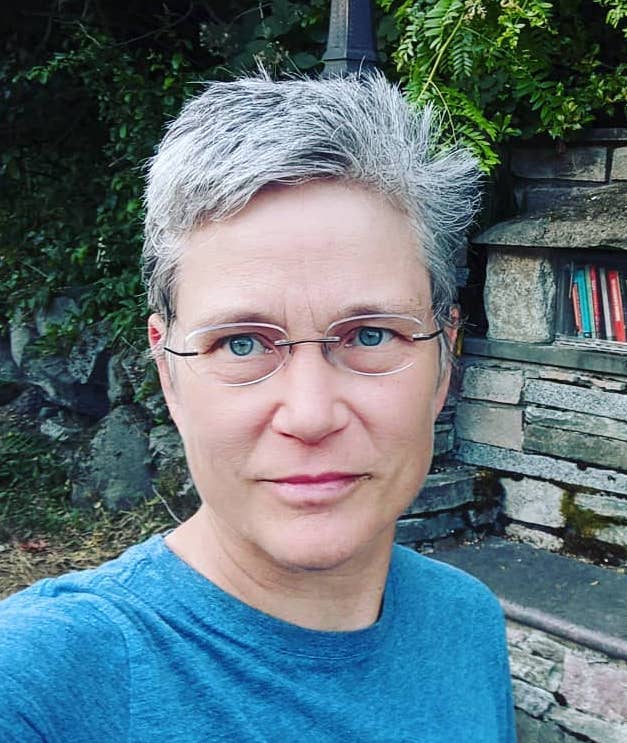In October 2023, I took on a 3-year project as lead of NMFS Open Science, which is helping adoption of Open Science and Open Data practices across NOAA Fisheries as part of a larger data modernization effort. I am also co-organizer of the Inter-agency R User Group (federal agencies) and NMFS Openscapes. Since 2020, I have helped Openscapes lead Open Science team trainings at NOAA Fisheries across all our science centers and involving 400+ staff. Since 2018, I have also been heavily involved in organizing, teaching and mentoring at “HackWeek” events in the earth sciences: ICESat-2 Hackweeks 2022, SnowEx Hackweek 2022, OceanHackWeek 2023 & 2024, ITCOocean Hack2Week (India) 2023, PACE HackWeek 2024, and UW eScience-NASA Earth Science HackWeek 2024.
In my role as NMFS Open Science lead, I am working on a variety of efforts to support adoption of Open Science and facilitate data modernization and climate ready fisheries in NOAA Fisheries. My role is to accelerate the work of NOAA Fisheries scientists by helping develop policies and to reduce barriers that prevent NOAA Fisheries scientists from maximally adopting Open Science and integrating ocean climate data into their models. Scroll down to see some of the Open Science activities that I am involved in.
Interests
- Population Modeling
- Statistical Ecology
- Conservation Biology
- Time-series Analysis
- Stochastic Processes
Education
- PhD in Zoology, 1995, University of Washington
- BS in Mechanical Engineering, 1988, Stanford University
- BS in Biology, 1988, Stanford University
Policy I serve in the following capacities
- NOAA Fisheries representative on the NOAA Public Access to Research Results working group.
- A NOAA representative on the White House Office of Science and Technology subcommittee on Open Science.
- A NOAA Fisheries representative on the working group developing NOAA Open Source software policies
- A representative on the NOAA Fisheries GitHub Governance Team
Capacity Building
I am involved in hackweeks to help train and engage scientists with climate data and the tools of the big data cloud revolution in earth sciences.
- Nov 2021 NASA Openscapes Cloud Hackathon - Participant (Python) https://nasa-openscapes.github.io/2021-Cloud-Hackathon/
- Mar 2022 eScience ICESat-2 Hackathon - Participant (Python) https://icesat-2-2022.hackweek.io/
- July 2022 eScience SnowEx Hackathon - trainer, let the GitHub and team facilitation aspects (Git mainly and facilitation) https://snowex-2022.hackweek.io/
- Aug 2023 OceanHackWeek (Seattle)- Project lead. All aspects of helping team with a project using satellite data in fisheries distribution modeling (R) https://oceanhackweek.org/
- Sept 2023 Indian National Centre for Ocean Information Services. Ocean Hackweek on fisheries species distribution modeling using satellite data. (R and Python) - main organizer, 60% of teaching, and 100% of instruction coordination. https://hackweek-itcoocean.github.io/2023-Hackbook/
- Dec 2023-Mar 2024. NOAA Fisheries. Mini-hackdays on using cloud data. - I run and teach this.
- Aug 2024 PACE HackWeek (Baltimore) - Organizer team and project lead for project on PACE ocean color data.
- Aug 2024 UW-NASA EarthScience HackWeek (Seattle) - Helper and project lead on a machine-learning project.
- Aug 2024 OceanHackWeek (Bigelow) - Organizer team and project lead for project on PACE ocean color data.
Open infrastructure for cloud computing and working with big data
Lots of cloud data is not that useful if it is not easy to use and people don’t know how to use the toolsets. I work in this area by training people in JupyterHubs plus “Docker images for scientists” and participating in working groups to pick away at the barriers to entry into cloud computing.
- I help people install JupyterHubs and set them up for working in Python and R environments.
- I am an active participant in an informal group working on Docker images for the JupyterHub geospatial and cloud data communities. Members of rocker and Pangeo stack developers are involved.
- I help teams develop their Docker images for Python (esp) environments for use in our containers computer platforms.
- Developer of py-rocket-base, a Python-R image for earth science research.
Open Science collaboration tools
- I teach Git and GitHub for science teams and have been one of the core leaders of the effort to roll out GitHub Enterprise across NOAA Fisheries.
Open Source and Open Content
Most of my science research and teaching material is on GitHub and organized into the following organizations:
- Time series analysis atsa-es
- Working with remote sensing data ocean-satellite-tools
- R Workflow RVerse-Tutorials
- Supporting Open Science NMFS Open Science and NMFS Openscapes
- Catch forecasting Fish-Forecast. Lectures, labs, and an online book on catch forecasting from a recent short course.
My big side projects are
- Applied Time-Series Analysis for Fisheries and Environmental Data: Course webpage, MARSS R packages, and atsar R package for Bayesian MARSS models, and our online book.
- Open-science workflow I am involved in a few different efforts and 2021-23 has had me running a bunch of workshops. Scientific workflow training, Openscapes cohorts, R-Govys new R consortium working group to support R-users in government.
- Global Upwelling. I supervise summer interns on this project.
My research is focused on stochastic processes and statistical models for complex multivariate, interacting systems. Much of what I do involves developing algorithms for fitting multivariate autoregressive state-space (MARSS) models to time-series data, which comes up in vector autoregressive state-space modeling, dynamic linear modeling, MAR(1) modeling, and dynamic factor analysis. I developed an EM algorithm for fitting a general constrained version of these models and develped the MARSS package for fitting such models. In my spare time, I’ve been working on predictive models of “multi-player” systems—I’ve been studying this with soccer match data. This is another application of my work on developing predictive models using ‘bad’ data.
